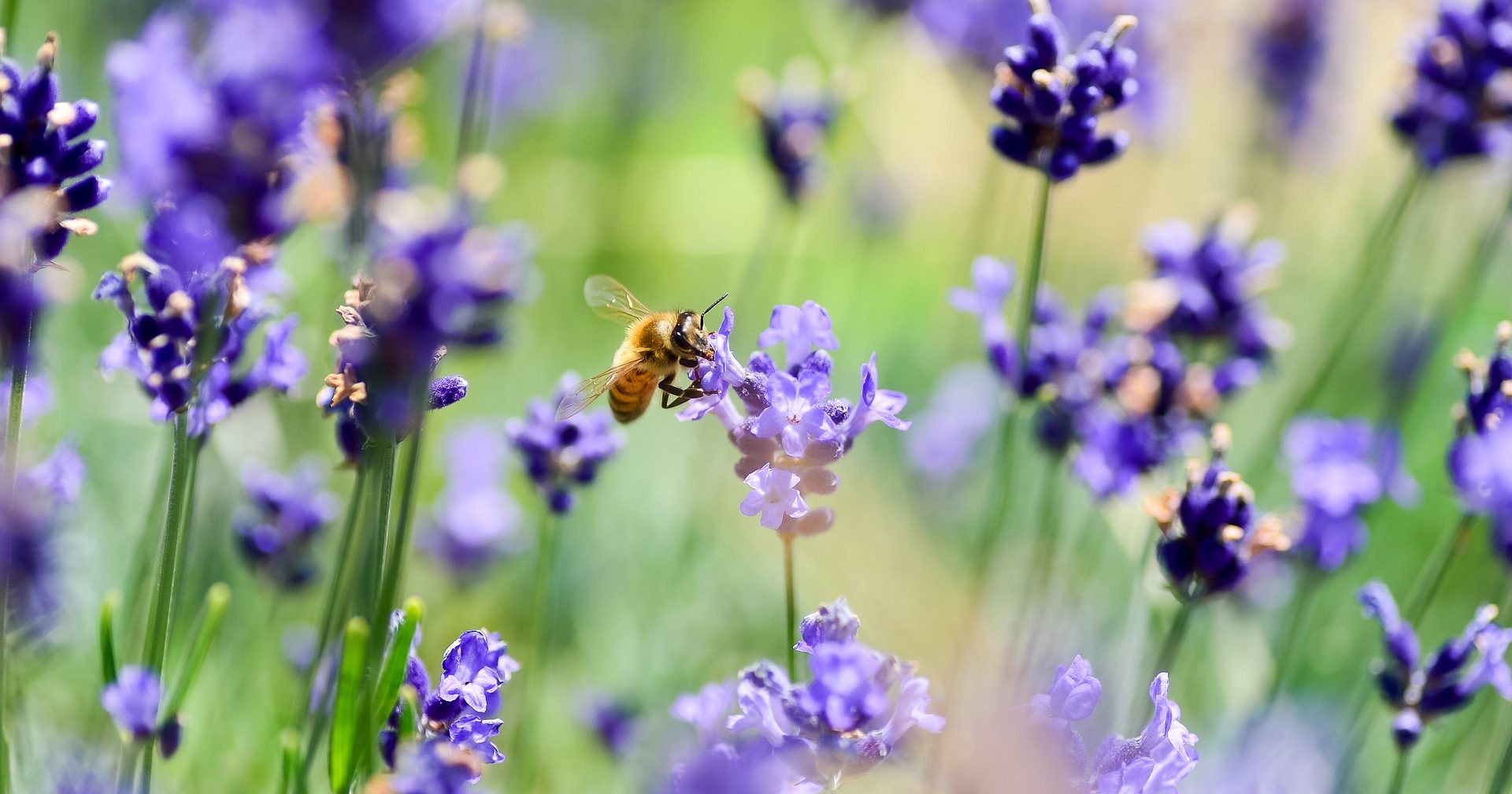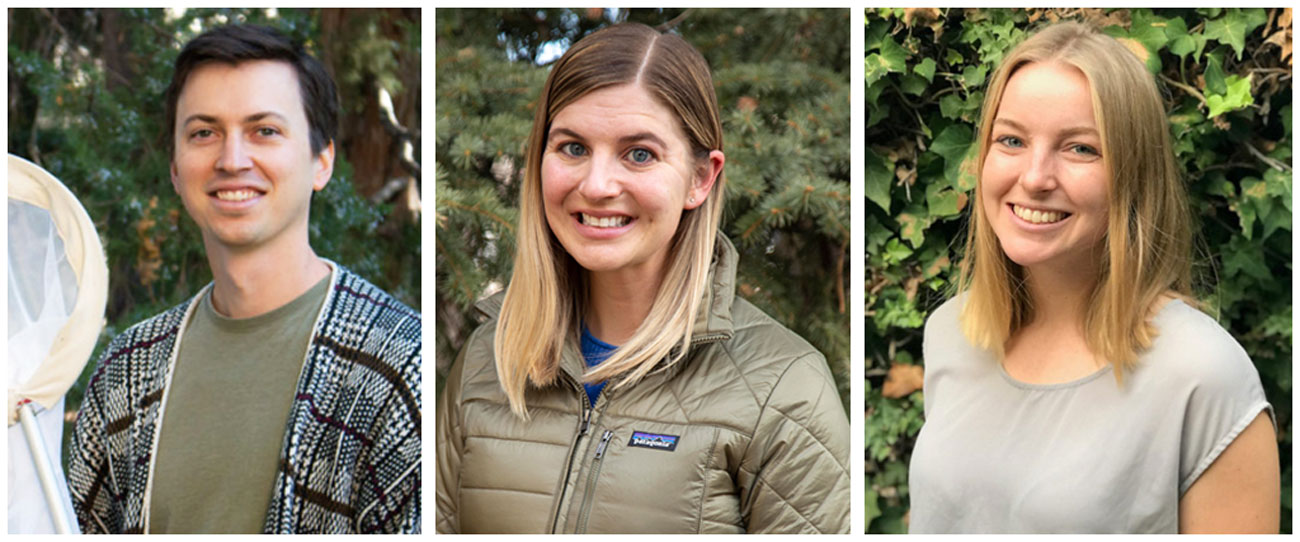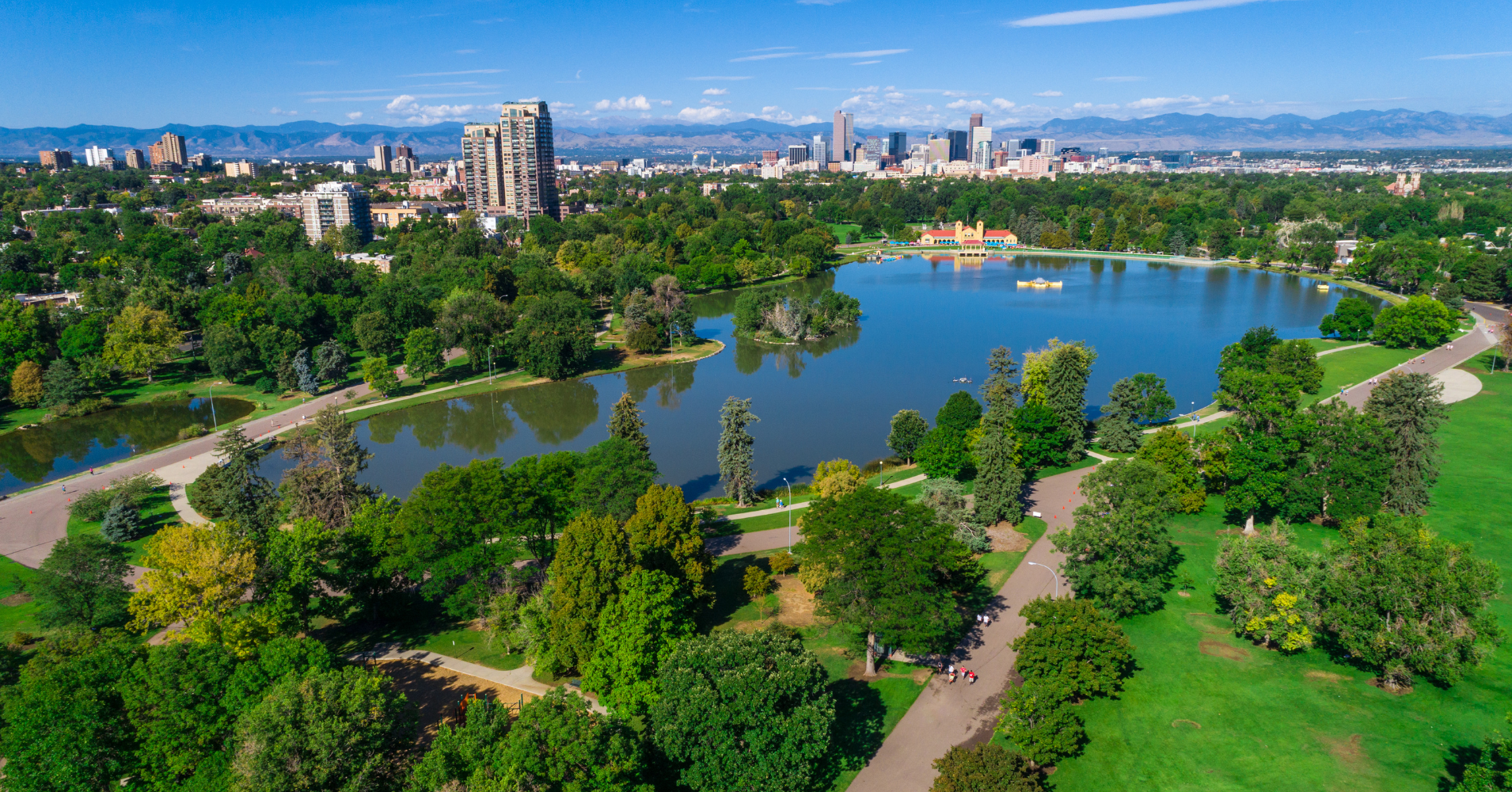
Adapted from a news release by the Salazar Center for North American Conservation and Denver Parks and Recreation.
A Colorado State University team has been awarded the inaugural grant from a program created by the Salazar Center for North American Conservation in partnership with Denver Parks and Recreation. The Urban Climate Resilience initiative was launched earlier this year.
Principal investigator John Mola, Ph.D., an assistant professor in the Department of Forest and Rangeland Stewardship in the Warner College of Natural Resources, will receive $150,000 from the Salazar Center to optimize plant choices to maximize pollinator habitat, climate resilience and social values across Denver parks and neighborhoods. The project supports DPR’s efforts to deliver equitable climate resilience solutions across the city’s diverse communities.
Mola and his team, Caroline Havrilla, Ph.D., an assistant professor in the Department of Forest and Rangeland Stewardship; and Veronica Champine, a Ph.D. candidate in the Department of Human Dimensions of Natural Resources, are the inaugural grantees of this pilot program, which the Salazar Center and DPR co-designed to identify, leverage and fund actionable research that supports the city’s climate management needs and decision-making.
“We’re excited to connect CSU’s world-class conservation research with the city and county of Denver to support climate resilience goals,” said Beth Conover, executive director of the Salazar Center. “And I hope that we can continue to build this program for Denver and other partners moving forward.”

Focus on climate and resilience
In Denver, as in many other cities across the arid West, climate change is resulting in hotter temperatures and changing precipitation patterns, the impacts of which are further intensified by urban heat island effects. These factors create considerable challenges that prevent pollinators essential to the ecology of these urban areas from thriving. Pollinators help propagate biodiversity by ensuring that plants can reproduce and flourish in cities and beyond.

Critical pollinator species like bees have declined significantly over the last decade due to environmental factors. Increasing the number and variety of native pollinators is a key focus area for DPR’s resiliency efforts.
“Denver Parks and Recreation is committed to restoring and protecting healthy pollinator habitats and ecosystems,” said Happy Haynes, executive director of Denver Parks and Recreation. “This project will assist us in optimizing plant selection to maximize native pollinators within Denver parks and create sustainable practices that support equitable climate resilience solutions, which are important to the health and beauty of Denver.”
While bees can be impacted by climate change directly, the indirect impacts must also be taken into consideration in creating long-term resiliency. For example, as temperatures continue to rise, plants used in pollinator restoration efforts need to be chosen for their suitability under future conditions. Mola’s team seeks to design a flexible “future ready” pollinator planting guide by combining information on pollinator preferences and plant tolerance to warmer and drier conditions.
“There are a variety of ‘pollinator friendly’ plant lists – but they’re not developed to be climate resilient or adapted to urban environments, and they certainly don’t consider the aesthetic or cultural values of people who will interact with these plants on a daily basis,” Mola said. “Our project seeks to rectify these issues and create well-balanced recommendations that will benefit Denver parks, people and pollinators.”
Community engagement and impact
Pollinator habitat is critical for bees, butterflies and other insects in urban environments, but efforts to restore these habitats in cities often prioritize specific plant mixes without taking community perspectives into account. For example, native grass mixes may look like weeds to residents and make a space feel less safe or inviting. Restoration work also may replace plants with local cultural significance with more climate-resilient species without consulting the community.
To better incorporate social equity into these kinds of restoration efforts, community engagement is a key component of Mola’s research, and residents’ input will be factored into the team’s final recommendations. To achieve this, the research team will engage community scientists and DPR’s robust network of youth volunteers to collect data on the pollinators, residents’ values toward various plants and other factors relevant to Denver’s network of parks. The project will ultimately provide information to guide DPR’s planting efforts as part of the Game Plan for a Healthy City, a 20-year park and recreation plan for Denver’s urban and mountain park systems, in ways that support pollinator habitat, increase climate resilience and reflect community values and buy-in.
The Salazar Center anticipates that this pilot program will serve as a model that can be replicated for years to come, amplifying the impact of cutting-edge research being produced at CSU, informing future partnerships between academia and the public sector and inspiring other cities to act now to ensure a healthier, sustainable future.
About the Salazar Center
The Salazar Center for North American Conservation at Colorado State University works to connect diverse leaders, communities, and resources across the North American continent to accelerate the pace and scale of equitable, innovative, and durable solutions for nature and all people. The Center’s work is based on an understanding that healthy natural systems support climate adaptation and resilience, protect biodiversity, and support long-term human health. Its intersectional approach builds bridges that connect academic research, community practice, and policy development.
Learn more at salazarcenter.colostate.edu
About Denver Parks and Recreation
As stewards of a legacy park system, Denver Parks and Recreation is dedicated to customer service and enhancing the health of residents and the environment through innovative programs and safe, beautiful and sustainable places. The DPR system includes 30 recreation centers and over 20,000 acres of urban and mountain parkland including off-street trails, parkways and natural areas.
For more information, visit denvergov.org/parksandrecreation